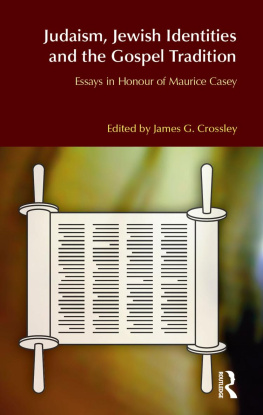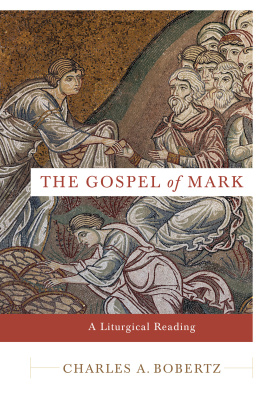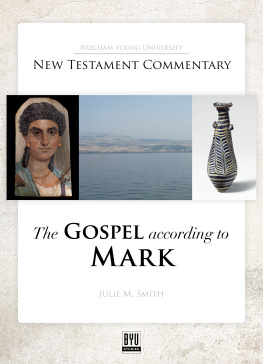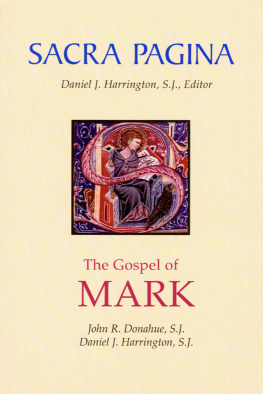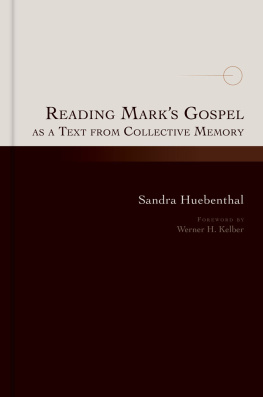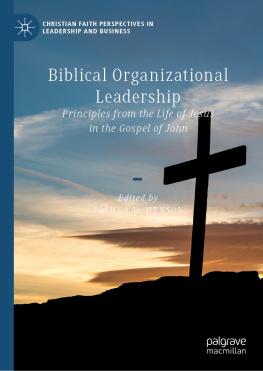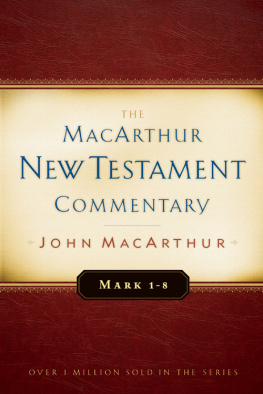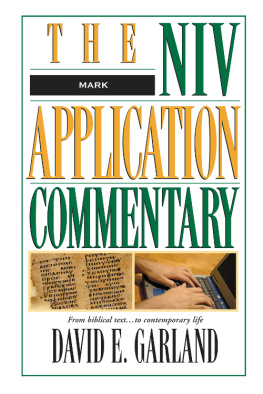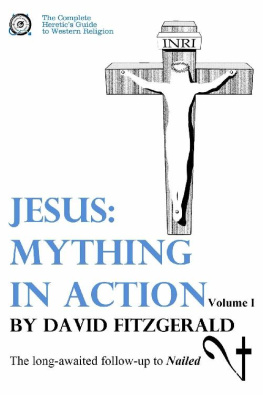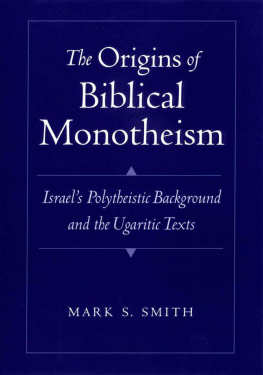JESUS FRAMED
Jesus Framed is a collection of essays on reading the gospel of Mark. It uses literary theory, most notably the writings of Roland Barthes, to examine some of the difficulties in the text of Mark. A series of close readings of the gospel of Mark is compared to similar texts, both biblical and otherwise. Drawing on Marks famous phrase that to those who are outside all comes through parables (Mark 4:11-12), Jesus Framed explores the boundaries between insiders and outsiders, those who can, and those who cannot, find a meaning in the text.
George Aichele is Professor of Philosophy and Religion at Adrian College, Michigan. He is author of The Limits of Story (1985) and, as a member of the Bible and Culture Collective, co-author of The Postmodern Bible (1995).
BIBLICAL LIMITS
We have to move beyond the outside-inside alternative; we have to be at the frontiers. Criticism indeed consists of analyzing and reflecting upon limits.
- Michel Foucault (What is Enlightenment?)
This series brings a variety of postmodern perspectives to the reading of the familiar biblical texts. Books in the series will bring the traditional field of biblical studies face to face with literary criticism, anthropology and gender-based approaches, thus reaching new ways of understanding biblical texts.
EDITORS
Danna Nolan Fewell
Southern Methodist University, Dallas, Texas
David M. Gunn
Texas Christian University, Fort Worth, Texas
Gary A. Phillips
College of the Holy Cross, Worcester, Massachusetts
First published 1996
by Routledge
11 New Fetter Lane, London EC4P 4EE
Transferred to Digital Printing 2004
Simultaneously published in the USA and Canada
by Routledge
29 West 35th Street, New York, NY 10001
1996 George Aichele
Typeset in Garamond by Solidus (Bristol) Limited
All rights reserved. No part of this book may be reprinted or reproduced or utilized in any form or by any electronic, mechanical, or other means, now known or hereafter invented, including photocopying and recording, or in any information storage or retrieval system, without permission in writing from the publishers.
British Library Cataloguing in Publication Data
A catalogue record for this book is available from the British Library
A Library of Congress Cataloguing in Publication Data
Aichele, George.
Jesus framed / George Aichele.
p. cm. (Biblical limits)
Includes bibliographical references and index.
1. Bible. N.T. MarkCriticism, interpretation, etc. I. Title.
II. Series.
BS2585.2.A42 1996 95-39726
226.3'066dc20 CIP
ISBN 0-415-13862-0 (hbk)
ISBN 0-415-13863-9 (pbk)
TO JANELLE AND TINA, THIS BOOK IS DEDICATED.
The Word is no longer guided in advance by the general intention of a socialized discourse; the consumer ... receives [the Word] as an absolute quantity, accompanied by all its possible associations.
(Barthes 1967b:48)
This book draws very heavily on the work of Roland Barthes, for whose writings such postmodern themes as the relation between the sign and history, the identity of the reading subject, and the role of ideology in culture are central. Of particular relevance to the explorations of the gospel of Mark in this book have been Barthess use of the related concepts of connotation and denotation (which Barthes borrowed from Louis Hjelmslev, but which are widely in use throughout linguistics and the philosophy of language), and of intertextuality (which Barthes borrowed from Julia Kristeva). Although Barthes does not often refer explicitly to the materiality of the physical text, that concept also is closely related to his discussions of the pleasure of the text, the rustle of language, the grain of the voice, and his numerous other references to text as a body. Barthes lurks in the background of every page of this book, and the reader who wishes to pursue further the issues raised here would do well to read his writings. English translations of most of his books are listed in the bibliography at the end of this book.
I also acknowledge Frank Kermodes The Genesis of Secrecy (1979), which has served during the writing of this book both as model and frequent provocation. In addition, although I do not follow the reader-response methodology outlined in and rigorously exemplified by Robert Fowlers Let the Reader Understand (1991), nevertheless Fowlers stress upon and unflagging attention to the role of the reader in relation to the meaning of text has been of great value to me. Varieties of reader-response criticism remain popular and influential in literary studies of the Bible, but they will not be discussed here, although some criticisms of reader-response theory may be inferred from the following. However, like both Kermode and Fowler, I find the play between reader and text to be of great interest. Finally, Stephen Moores book, Mark and Luke in Poststructuralist Perspectives (1992), must be mentioned, for it moves in very much the same waters as this book, and yet in an opposite direction. Moores book buries the text of Mark beneath manifold and playful (very playful, but in another way than my own) readings, and these in turn generate an infinite rippling of meaning across Marks text. Instead of enjoying the text of Mark as a meaningful plenitude, as Moore does, what I seek here are those places where the physical aspect of the signifier, which I also call the materiality or hul (stuff) of the text, interrupts the flow of meaning. The crucial difference of this book from the books of Kermode, Fowler, and Moore, as well as much other biblical criticism, lies in its attempt to close in on the text itself and to produce readings of a text which is itself, finally, unreadable. It is in this sense that this book is postmodern.
Members of the Semiotics and Exegesis Section and the Ideological Criticism Group of the Society of Biblical Literature, as well as students and faculty at Adrian College, have listened to, read, and commented helpfully on various parts of this book. I am also indebted to my colleagues in the Bible and Culture Collective - Fred Burnett, Elizabeth Castelli, Bob Fowler, David Jobling, Stephen Moore, Gary Phillips, Tina Pippin, Gina Schwartz, and Wilhelm Wuellner - for their comradeship and friendly provocation. Our group writing of The Postmodern Bible (Yale University Press, 1995) has profoundly stimulated my own work. Fred Burnett and Bob Fowler have furthermore read versions of the manuscript of this book and have offered many thoughtful and very helpful suggestions. In addition, the editorial team of Danna Nolan Fewell, David Gunn, and Gary Phillips have provided numerous corrections and suggestions, as have the anonymous Routledge readers.
I owe special thanks to Janelle Lutzke and to Tina Pippin. In addition to asking me hard questions and not letting me off with easy answers, both Janelle and Tina have pushed me in directions that I needed to go and have helped me to see things that I needed to see. Their wisdom and their generosity with advice and moral support is deeply appreciated. Following Janelles lead, in this book I use the feminine pronouns she and her whenever the antecedent could be a human being of either sex; often, it is the reader. If this book is needlessly obscure or otherwise defective, it is no doubt because I have failed to heed the advice of such careful friends.


